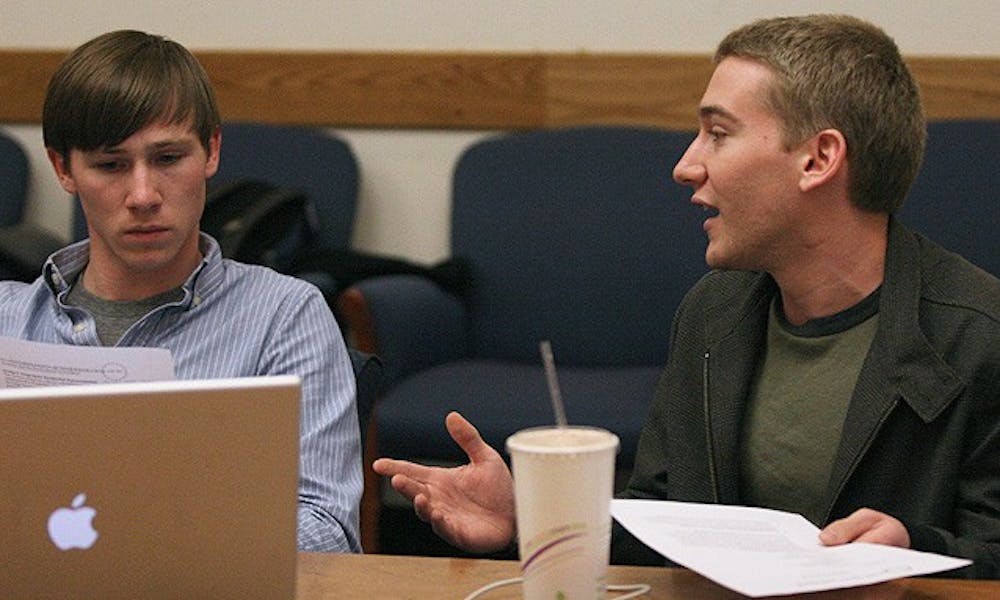Duke Student Government and Campus Council are in the process of defining a revised system for residential government under the house model.
Members of the two groups met together Thursday night following their recently-approved merger, which was passed as a referendum Tuesday during Young Trustee election. Despite a complaint that voters for the Young Trustee process should have been allowed to abstain from voting on the referendum, the DSG Judiciary ultimately ruled the vote legitimate.
According to the draft of the bylaw discussed at the meeting, each house will have its own council and its own programming budget. House councils will meet weekly and will be able to bring legislation to the Senate floor. The councils will also form neighborhood councils—likely designated by proximity.
“We’re anticipating what houses will look like in the future,” DSG President Mike Lefevre, a senior, said of the bylaw. “Houses will have autonomy, but they will likely want to build neighborhood coalitions as well.”
Lefevre acknowledged that many details of the new residential government structure is tentative because the administration is still in the process of determining what the house model will look like in practice.
“We want houses to be independent, autonomous and highly productive bodies,” said Campus Council President Stephen Temple, a senior, adding that the next few weeks are going to be crucial in determining exactly how government will function under the house model.
The representatives also discussed the fact that the University’s administration is considering revoking funding from the Facilities and Services committee, which falls under Campus Council and is responsible for maintaining and improving residential facilities on students’ behalf. Facilities and Services, which will likely be a subcommittee of the Residential Life and Dining Committee, currently has a budget of about $70,000.
At the meeting, DSG and Campus Council said they hope the administration will not revoke the funding. In an interview Thursday evening by phone, however, Vice President for Student Affairs Larry Moneta said the current funding arrangement is not feasible moving forward.
“Funding is tight, and we need to be very thoughtful about deployment of limited resources,” Moneta said. “The idea of engaging in facility upgrades and particular small projects makes perfect sense, and we will absolutely support continued exploration. But, lump sum allocation doesn’t make sense.”
Moneta added that the lump sum allocation has not historically produced the variety in projects that the University would have liked to have seen.
DSG and Campus Council either have to make FSC a purely idea-generating body or petition for funds from other departments, like Student Affairs or Campus Recreation, Lefevre said. He also added that the possibility of expanding the FSC’s purview to incorporate non-residential projects will be considered in upcoming weeks.
“We know that we want this money to come from the administration or other departments—not student fees,” said FSC Chair Doug Hanna, a sophomore.
In other business:
DSG will be accepting applications within the next week for interim positions on the Residence Life and Dinning Committee. DSG will appoint an interim vice president and 10 interim senators. Those selected will serve out their terms through the last day of classes, Lefevre said.
Campus Council will continue to serve in its current capacity until April 1, Temple noted.
Get The Chronicle straight to your inbox
Signup for our weekly newsletter. Cancel at any time.

